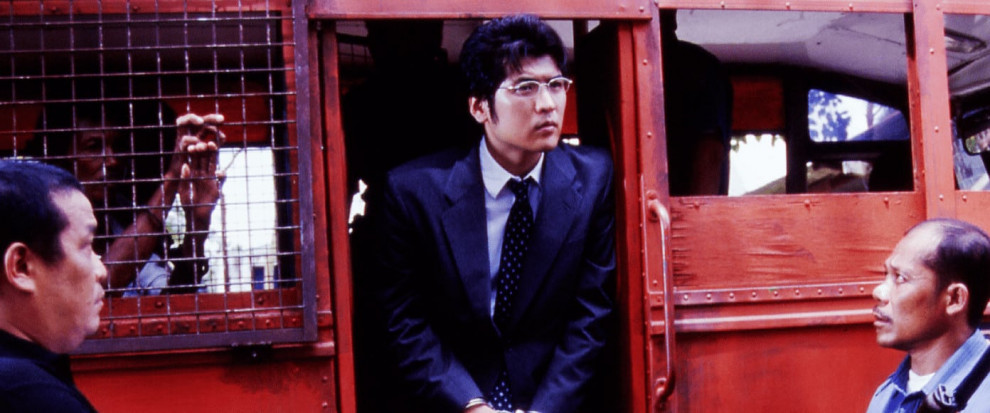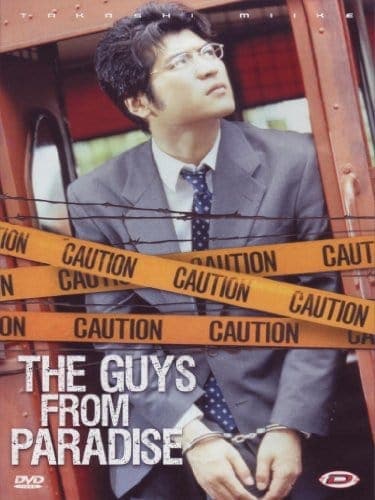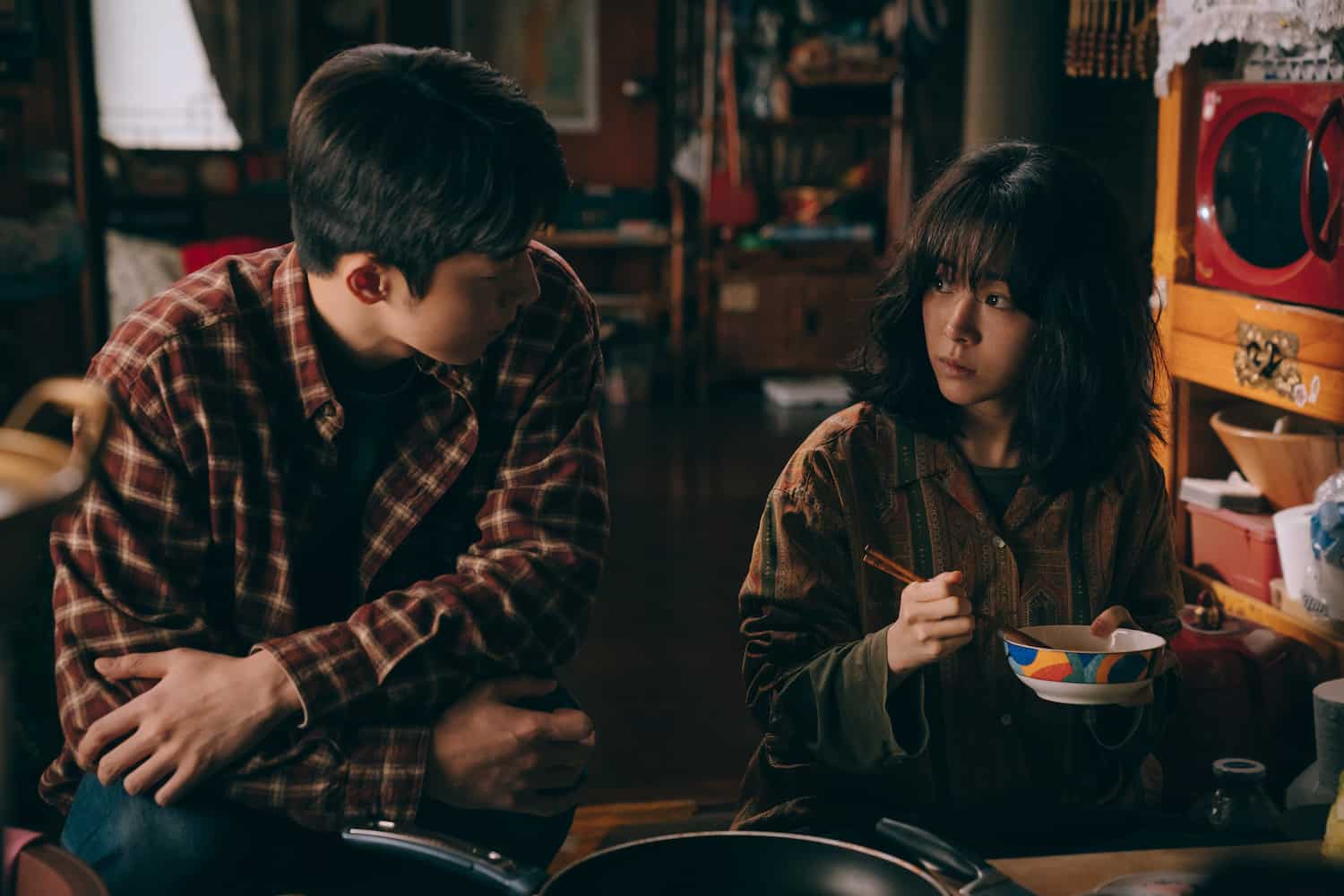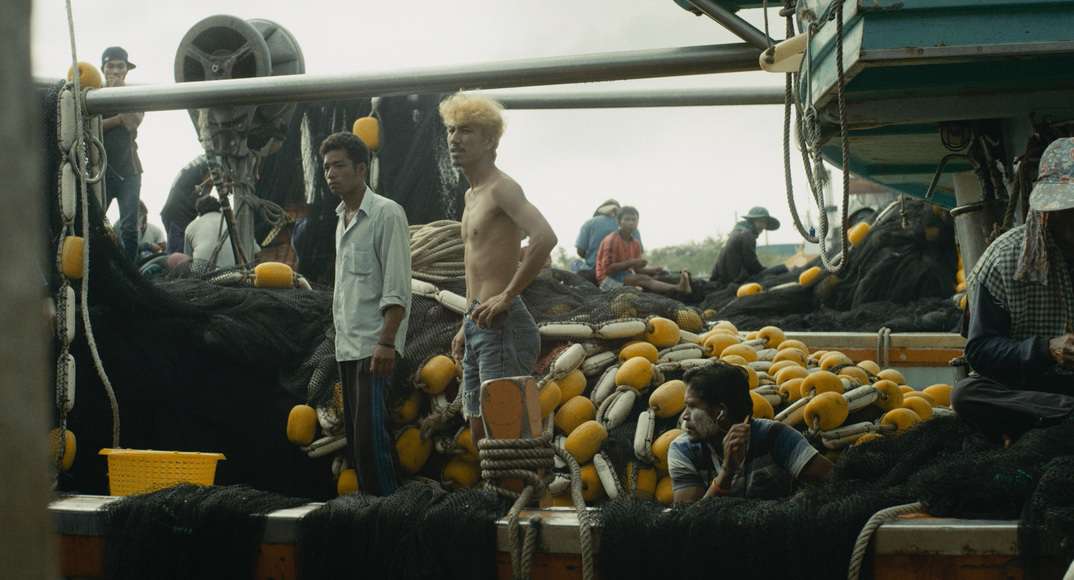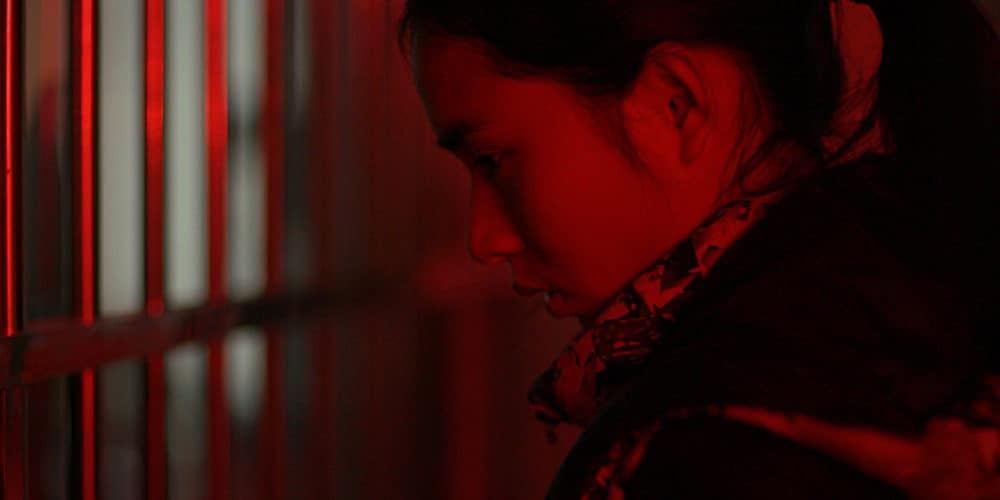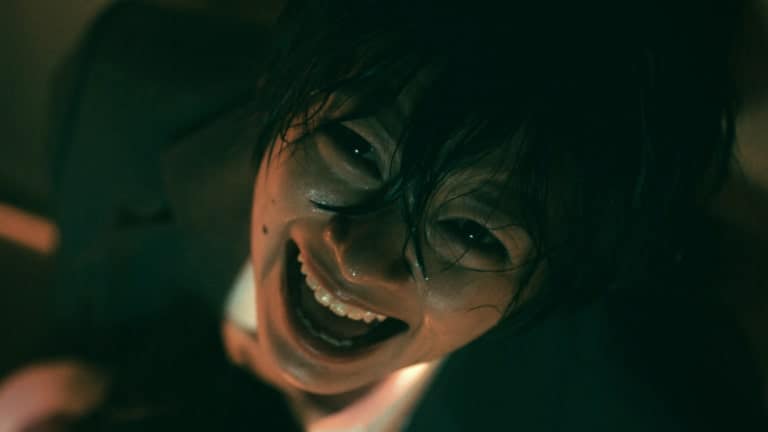Analyzing Takashi Miike under the aspect of foreigness, “The Guys from Paradise” marks another entry adding up to his earlier movies like “Black Triad Trilogy” or “The Bird People in China”. This time he sends Japanese Salaryman Kohei off to the Philippines for a comical jail drama.
Buy This Title
Innocent but convicted for drug trafficking on a business trip, Kohei finds himself in a prison cell in Manila. But being among with six other Japanese inmates, he quickly manages to move in and out the prison freely while the corrupt guards take bribes and keep a blind eye to the drug dealing that the group is organizing within the prison walls. The business of the Japanese group is disturbed by rival Philippine gangs and a discovery of stolen diamonds spices up the whole plot.
The contradiction between the local Philippines and the Japanese, who find themselves in a fish-out-of-the-water scenario at first, gives plenty of room for opposing representations of different lifestyles. Manila is portrayed as an uncivilized, dirty place, run by corruption and crime. Its people are poor and not trustworthy. The Japanese are also criminals, but in a civilized way. Their characters are ruined by money.

But Miike turns the tables, when the Japanese stumble across a tribe in jungle and the savages mistake them for ancient gods. Enlightened with a spiritual encounter, the group decides to bring wealth to the tribe. Kohei, not only worshiped as a saint, now also aims for a political career in the Philippines and gets very successful, due to his financial support from his criminal past.
“The Guys from Paradise” relates to common themes of Miike's repertoire, including the modernized Japanese versus the savage foreigner, the loss of moral ethics as a result of a capitalistic world and the story about die-hard gangsters who turn peaceful. The film shows that there are always, at least two sides of looking at things and Miike isn't so much about pushing it right up to your face, but delivers the message in an ironic way.

The plot is rather cheesy and predicable, except the absurd last act. Koji Kikkawa is doing a great job as Kohei, even though, after the movie, his acting career took an 8-year break before he was seen 2009 in a Kamen Raider production. The director is able to provide the viewer with a realistic feeling of desperation that is emphasized by the main protagonist. In the later “Big Bang Love, Juvenile A” (2006), Miike deepens this psychological mindset of life in prison using a much darker setting. In “The Guys from Paradise”, he rather mixes up drama and comedy.
Looking at the production, the movie takes a realistic approach. Takashi Miike shot everything on location, in a real prison and with real prisoners as extras. That gives the movie a kind of dirty and shady feeling, in a positive way. Definitely an aspect that lives up to Miike's reputation as an outlaw film director.
Overall “The Guys from Paradise” is another gonzo by the renowned filmmaker who directed three others movies and a six-part TV mini-series in that same year. Film critic, Mark Schilling, may be right when comparing Miike's output with the legendary Seijun Suzuki, whose Yakuza flicks also made no compromise in terms of violence. Nevertheless, this production sticks out because of its unusual setting and the conflict between cultures.


